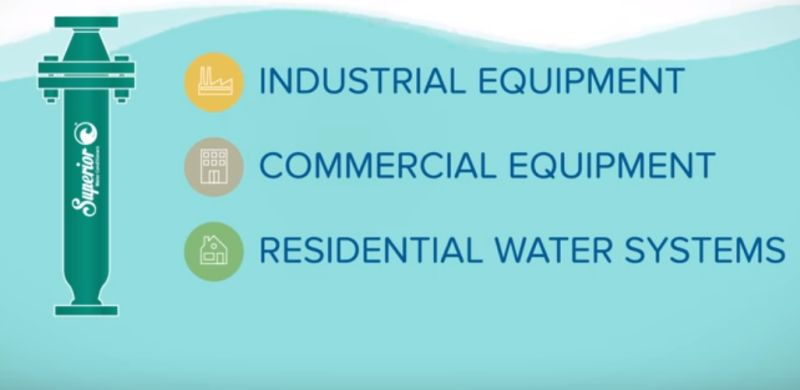The world that human beings live in today is very much different from the world of the past. There is no denying the fact that everywhere you turn and look, there is pollution. If you think that the water you are drinking from the tap is just as safe as it used to be, then you are wrong. But thanks to technology, water-filtering technologies have also improved.
Many years back, you may have only heard about water purifiers. But now, you have other and better machines, such as a water conditioner. If you haven’t heard about this yet, you’re in the right place. Read more below about what water conditioner systems are, and how they work.
What Is A Water Conditioner?
A water conditioner is also referred to as a salt-free water softener. This is so because unlike a softener, over time, the water from water conditioners does not have a salty residue. This works best for homes that need to clean up their water, but also have to be mindful about their salt intake. With water conditioners, you do not have to worry about this.
Water conditioners help reduce the build-up of lime scale, which you can usually see after you leave the water to dry up on the walls. If you notice that your walls have a whitish residue from water, this means that the water quality in your home has lime scale and other harsh minerals that will have to be reduced to a safer quantity. This benefits not just your health, but also the quality of your clothing and your water appliances.
How Do You Know That You Need A Water Conditioner?
Your home needs a water conditioner, or a water softener, when you notice that you have “hard” water. You can best determine your water condition after you send a sample of your water to a water-testing laboratory. From here, you will receive a full and detailed report about the entire state of your water. Not only will you learn about what good minerals are in your water, but you will also learn about the bad ones.
Although testing your water will be an additional cost to you, as a homeowner, it is one that you shouldn’t neglect. Harmful nutrients such as nitrates, sodium, chlorine, and the like might be in your water. Not only can this be harmful to you if you ingest it regularly, but it can also damage your appliances, such as water kettles and pots, and even your clothes.
After testing your water, it is there that you can clearly determine whether or not you need a water conditioner.
What Are The Benefits Of Having A Water Conditioner?
 While many still haven’t heard about what a water conditioner is, there are also those who swear by its effectiveness and its wonderful results. In fact, it is one of the most popular water systems around the US. If you don’t have one yet for your home, you might be missing out on its excellent benefits, such as the following:
While many still haven’t heard about what a water conditioner is, there are also those who swear by its effectiveness and its wonderful results. In fact, it is one of the most popular water systems around the US. If you don’t have one yet for your home, you might be missing out on its excellent benefits, such as the following:
- The water feels cleaner and less greasy
- The scaling in pipes is reduced
- The yellowish spots around faucets and drains are reduced
How Does The Water Conditioning System Work?
In a nutshell, this is how a water conditioning system works:
- Water enters the top part of the water conditioning tank and goes down through the resin beads.
- After going through the resin beads, the water is exposed to a process known as ion exchange, which refers to the resin releasing a negative charge. This negative charge then attracts positive minerals to flow with the water.
- The positive minerals that are attracted by the ion exchange process stick to the resin beads, whereby the water is conditioned or softened.
- The water goes out of the water conditioner and now spreads throughout all the faucets in the house.
After completing this process, you will get to enjoy cleaner and better-conditioned water. To know more about how water conditioning systems work, watch this video:
Where Is The Water Conditioner Installed?
Much of the question about water conditioners have to do with the installation process. Especially for those living in small homes without much extra space, they may think that installing a water conditioner in isn’t possible. On the contrary, all thanks to technology, there are different sizes and varieties of water conditioners that are tailored to your needs as a family and the size of your home.
Generally, the water conditioner is installed in the basement, garage, or utility closet of your home. Installers can also find their way in areas where you have extra space in which this system won’t be exposed.
Conclusion
With all the information mentioned above, perhaps now you have a better idea as to what water conditioners are. Having better water in your homes should go just beyond trying to improve your use of water and saving water. You must also ensure that you have the best water quality for your home. You might think that your water is “soft” and “clean,” but you are mistaken. A lot of households still have hard water, full of high concentrations of minerals that still need dissolving. With a water conditioner, and the way it works, you can now be better assured that the water going through your faucets is clean and safe for consumption and any other household use.
Article Submitted By Community Writer



